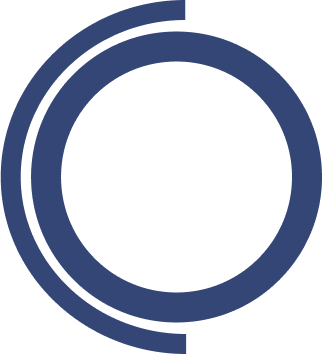Introduction: When Analytics Reveals the Hidden Problem
November 2024. Our client, a medical center specializing in skin mole diagnostics and removal, was operating in two cities. Their Google Ads campaigns were running, but something crucial was missing from their analytics setup.
The clinic had Ringostat call tracking installed, but the events weren’t being transmitted to Google Analytics. All optimization was based on high-level goals—clicks on website elements, form completions—but not the actual patient calls.
Imagine optimizing campaigns when half of your conversions (phone calls) are simply invisible in reports. Like shooting at a target blindfolded.
On November 14th, we configured the data transfer to analytics. Real conversions—patient calls—appeared in the dashboard. A new era of data transparency began.
We had no idea that this transparency would reveal an approaching disaster in the clinic’s Google Ads performance.
Initial Data Collection: Unexpected Results for a Local Medical Business
November 2024 (from the 14th): ~160 conversions (our baseline metric)
December 2024: ~160 conversions at +35% to the baseline cost per conversion
The properly configured tracking revealed the first warning signs. In just 16 days of November, we received the same number of conversions as in the entire month of December. Meanwhile, the cost had increased by a third.
This was a period of adaptation as the advertising system adjusted to new data, and we gathered statistics for further analysis. At that time, we didn’t yet understand that we were only seeing the tip of the iceberg.
Testing Strategy for Local Medical Business: Using a Small Market as a Proving Ground
We had Google Ads accounts for two cities—Kyiv and Vinnytsia. Our optimization logic was based on the principle of risk minimization for this local healthcare business:
Vinnytsia (smaller city):
- Budget 3-4 times smaller than Kyiv
- Lower competition in the medical niche
- More room for experiments
- Much lower cost of potential mistakes
Kyiv (capital city):
- Main Google Ads budget
- High competition among medical centers
- Required a more cautious approach
- Focused on collecting negative keywords and preparing structure
Results from the Vinnytsia “Testing Ground” – A Successful Local Business Google Ads Case
November 2024: ~30 conversions (baseline period for Vinnytsia)
December 2024: ~110 conversions at -43% to baseline cost (+255% conversions!)
January 2025: ~130 conversions at -11% to baseline cost
March 2025: ~190 conversions at -41% to baseline cost (peak efficiency)
The Silent Collapse in Kyiv
While we were experimenting and improving Google Ads in Vinnytsia, the Kyiv account showed the opposite trend:
January 2025: ~84 conversions at +177% to baseline cost
February 2025: ~76 conversions at +174% to baseline cost
Over two months, the situation became dire for this local medical business:
- Conversions fell by 50%
- Cost increased 2.7 times
- Daily conversions dropped to around 2.7 from 5.4 in November
The scariest thing about such situations is that they develop slowly. On weekly report charts, it looks like natural fluctuations. And then suddenly you realize: the account is falling apart before your eyes.
Systematic Data Analysis for Medical Google Ads
The success of the Vinnytsia experiments confirmed our strategy was correct. In December 2024, we began transferring our learnings to the Kyiv account.
Analysis of over 1,000 entries from the search query report (primarily Kyiv data) revealed systemic problems in the account structure for this local medical business.
Differences in approaches:
- Vinnytsia: Aggressive testing and rapid implementation of changes
- Kyiv: Gradual transfer of proven solutions + collecting own statistics
Preliminary Data Processing
The original report contained duplicate entries of the same queries from different campaigns and ad groups. After aggregating the data for unique search queries, we ended up with about 800 unique queries.
Z-score Analysis and Quantile Filtering for Google Ads
From 800+ unique search queries, after statistical processing (filtering out the bottom 10% by impressions and clicks), about 350 representative queries remained. The rest was noise consuming the Google Ads budget with no results.
Critical Efficiency Threshold
We calculated the normal limits:
- Average conversion cost: baseline metric x2
- Critical inefficiency threshold: baseline metric x4
We discovered that a quarter of the budget was going to queries above the critical threshold.
Cluster Analysis for Medical Clinic Google Ads
We divided the queries into 4 clusters based on CTR, Conversion Rate, and CPC metrics:
- The “Stars” Cluster (2-3 queries): CTR 45%+, Conversion Rate 60%+, cost -60% from baseline
- The “Expensive Effective” Cluster (several queries): Conversion Rate 60%+, cost -70% from baseline
- The “Balanced” Cluster (15+ queries): moderate indicators
- The “Unprofitable” Cluster (many queries): Conversion Rate <10%, cost +240% to baseline
75% of the budget was spent on the last two clusters.
Intent Analysis
Categorization by intent showed:
- Diagnostic queries converted 3.6 times cheaper than treatment queries
- Brand queries provided consistently low cost
- Competitor queries drained budget with virtually no conversions
The “Recovery” Operation for Kyiv Google Ads (March 2025)
After confirming the effectiveness of our strategy in Vinnytsia (~190 conversions at -41% to baseline cost in March), we began active implementation in the Kyiv Google Ads account for the medical center.
Adapting the Vinnytsia Experience
Technical solutions and structures that proved effective in Vinnytsia were adapted to the specifics of the Kyiv market:
- Higher competition required finer bid adjustments
- Broader semantics required more detailed segmentation
- Higher budgets allowed testing additional channels
Surgical Intervention
Based on cluster analysis and the Vinnytsia experience, we disabled all queries from the “Unprofitable” cluster and rebuilt the campaign architecture.
Results of Medical Clinic Google Ads Optimization:
March Results (Kyiv):
- Conversion cost: +61% to baseline (-40% month-over-month)
- Spending reduced by 40%+
- Daily: about 2.4 conversions (stabilization)
Logistic Regression and CR-scoring
We built a conversion prediction model and calculated the expected CR (Conversion Rate) for each query. Top queries by this scoring became the foundation for new campaigns.
Perfect Scaling of Google Ads for the Medical Center (April-May)
Client’s complaint in April: “Not enough leads. We need more patients.”
Task: increase the volume of medical advertising while maintaining efficiency.
Scaling Dynamics (Kyiv):
March: ~75 conversions at +61% to baseline cost
April: ~76 conversions at +52% to baseline cost
May: ~113 conversions in the first 16 days at +61% to baseline cost
Weekly Progression:
- End of April week: ~35 conversions
- Beginning of May week: ~48 conversions
- Mid-May week: ~43 conversions at +22% to baseline cost (best result)
Result: +50% conversions at stable cost*
*Data as of May 16, 2025
Parallel Success in Vinnytsia
April 2025: ~194 conversions at -24% to baseline cost
May 2025: ~91 conversions in 16 days at +3% to baseline cost
Peak Result of Google Ads for Local Medical Business:
May: ~113 conversions in the first 16 days at +61% to baseline cost
Result: +50% conversions at stable cost
Special Case: Performance Max in Medical Clinic Google Ads
The Performance Max campaign (Kyiv) demonstrated one of the most striking examples of recovery in this Google Ads case study:
Unstable History
- November 2024: ~34 conversions at -69% to baseline cost (excellent start)
- December 2024: ~72 conversions at -26% to baseline cost (volume peak)
- January-March 2025: Collapse — from ~32 to ~6 conversions, cost up to +138% to baseline
Cause Identification
In March, we detected a new aggressive advertiser in the auction, which led to increased click costs and decreased positions for Performance Max campaigns. The campaign was extremely unstable.
Counter-strategy and Recovery
Radical changes were made:
- Uploaded existing customer databases
- Created a separate segment for high-value patients
- Updated creatives and audience signals
- Added a negative keyword list
May Results
- ~69 conversions versus ~6 in March (growth +1000%+)
- Cost +16% to baseline versus +138% in March (improvement -69%)
- Example of radical improvement within a single campaign
This case shows how Performance Max requires not just algorithm learning time but also active management of audience signals in changing competition conditions.
Audience Research: What Social Media Posts Reveal
Alongside technical optimization, we conducted research into patient motivations. We analyzed forums, reviews, YouTube comments, and Facebook groups.
Discovered Insights:
Aesthetic motivation is deeper than it seems: “I can’t wear revealing clothes”, “I’m embarrassed at the beach”, “Children ask what these spots are”
Medical concerns appear in posts: “My mother had melanoma”, “The mole started to itch”, “I found a new, dark one”
Psychological barrier is the most powerful: “I made an appointment with the doctor but then canceled”, “I’m afraid of what the doctor will say”, “What if it hurts?”
Key Insight
“People aren’t afraid of moles; they’re afraid of uncertainty”
Patients are willing to endure discomfort rather than face uncertainty. What happens during the procedure? How much does it cost? What if something goes wrong?
Mathematics of Success for Local Business Google Ads
Comparison of Google Ads Optimization Periods:
Crisis (January-February):
- ~80 conversions/month at +175% to baseline cost
- About 2.7 conversions/day
After recovery (March-May):
- ~88 conversions/month on average at +58% to baseline cost
- About 4.3 conversions/day
Peak result (May, first 16 days):
- ~113 conversions at +61% to baseline cost
- 7+ conversions/day
Effectiveness of Medical Clinic Google Ads Optimization
Successful scaling is proven by the numbers: we increased volume by 1.5 times without increasing conversion cost relative to the stabilized period.
Conclusions from This Local Business Google Ads Case Study
Crises in medical advertising develop slowly and imperceptibly. Weekly reports can hide catastrophic trends.
Statistical analysis of big data finds patterns invisible in manual campaign analysis.
Clustering and machine learning outperform intuitive bid management in effectiveness for local business Google Ads.
Quality audience research provides context for quantitative improvements in medical center Google Ads.
Scaling without losing efficiency is the highest piloting skill in managing Google Ads for local businesses in the healthcare sector.
Summary of this Medical Clinic Google Ads Case Study
Setting up proper conversion tracking is not just a technical task but the foundation for decision-making in Google Ads for the medical sector. Data visibility allowed us to identify the crisis, find its causes, and build a system for sustainable growth.
Key strategy: Using a small market (Vinnytsia) as a testing ground for solutions before scaling to the main market (Kyiv) allowed us to minimize risks and maximize results for this local business Google Ads campaign.
The result is not just recovery of the medical center’s Google Ads metrics but creating a scalable optimization model applicable to other projects in the healthcare sector.
Success Timeline:
November 2024: Analytics setup
December 2024: Start of experiments in Vinnytsia
January-February 2025: Crisis in Kyiv, solution development in Vinnytsia
March 2025: Transfer of strategy to Kyiv
May 2025: Achievement of peak results in both cities

